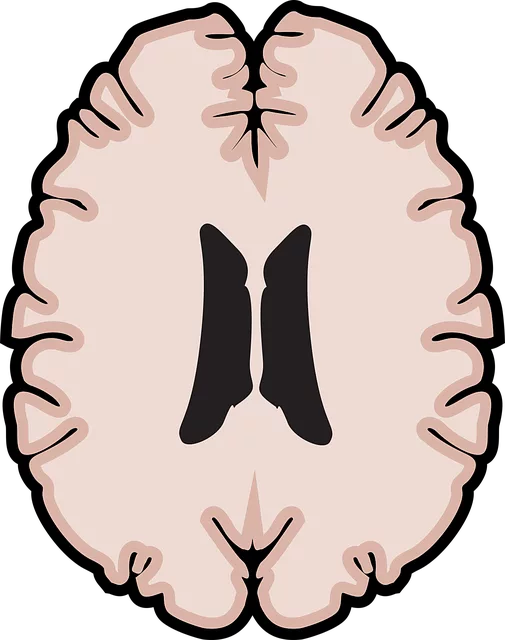Lakewood Kaiser Permanente psychiatry focuses on public awareness campaigns to address community mental health needs by targeting demographics with tailored interventions for youth, seniors, and ethnic minorities. These campaigns emphasize self-esteem improvement and positive thinking to destigmatize mental health issues, fostering a supportive community ecosystem. Measuring impact through KPIs shows promising results, with increased counseling service utilization and policy changes supporting improved mental health outcomes.
Public awareness campaigns play a vital role in addressing mental health challenges within communities, and Lakewood Kaiser Permanente Psychiatry has been at the forefront of this initiative. This article explores the development of such campaigns, focusing on understanding community needs and designing impactful strategies. We delve into the process of creating effective public education initiatives, highlighting key steps from assessment to evaluation, all while emphasizing the success seen at Lakewood Kaiser Permanente Psychiatry.
- Understanding Community Mental Health Needs at Lakewood Kaiser Permanente Psychiatry
- Designing Effective Public Awareness Campaigns for Psychiatric Disorders
- Measuring Impact: Evaluating Success of Public Education Initiatives at KP
Understanding Community Mental Health Needs at Lakewood Kaiser Permanente Psychiatry

At Lakewood Kaiser Permanente Psychiatry, there’s a growing recognition of the importance of public awareness campaigns development in addressing community mental health needs. By understanding the unique challenges and nuances within the local population, healthcare professionals can design targeted interventions that resonate deeply with residents. This involves delving into the specific issues affecting different demographics, such as youth, seniors, or ethnic minorities, to ensure inclusive care.
The integration of public awareness campaigns aimed at promoting self-esteem improvement and positive thinking plays a crucial role in fostering mental well-being. Through creative outreach strategies, Lakewood Kaiser Permanente Psychiatry aims to destigmatize mental health issues while encouraging proactive measures for maintaining psychological resilience. Such initiatives not only enhance access to support services but also contribute to building a more supportive and understanding community ecosystem.
Designing Effective Public Awareness Campaigns for Psychiatric Disorders

Public awareness campaigns play a pivotal role in destigmatizing psychiatric disorders and encouraging individuals to seek help. When designed effectively, these campaigns can significantly impact communities, fostering understanding and empathy for those facing mental health challenges. At Lakewood Kaiser Permanente psychiatry, we understand that creating impactful public awareness requires strategic planning and evidence-based approaches.
A successful campaign should include a comprehensive mix of educational materials, engaging media content, and community outreach programs. It is essential to present accurate information about various psychiatric disorders, dispel myths, and offer practical guidance on recognizing signs and symptoms. Incorporating real-life stories and testimonials can humanize the issue, connecting with audiences on an emotional level. Additionally, integrating Crisis Intervention Guidance and Risk Assessment for Mental Health Professionals into these campaigns ensures that individuals at risk receive timely support and access to appropriate resources.
Measuring Impact: Evaluating Success of Public Education Initiatives at KP

Measuring impact is a crucial aspect of evaluating the success of public education initiatives at Lakewood Kaiser Permanente (KP) psychiatry departments. By employing robust evaluation methods, healthcare professionals can assess how effectively their programs reach and positively influence the community. This involves tracking key performance indicators (KPIs), such as increased awareness about mental health issues, changes in behavior, and improvements in self-esteem, as these are vital metrics for understanding the broader impact of public education efforts.
For instance, KP’s initiatives aimed at promoting emotional healing processes through public awareness campaigns have shown promising results. The number of individuals seeking counseling services has risen significantly, indicating a growing comfort level in discussing mental health concerns. Moreover, Mental Health Policy Analysis and Advocacy, sparked by these campaigns, has led to policy changes that better support community mental health needs. This success highlights the importance of continuous evaluation, ensuring public education initiatives not only reach their intended audience but also drive tangible improvements in self-esteem improvement and overall mental health outcomes.
Public awareness campaigns play a pivotal role in destigmatizing mental health issues and promoting community well-being, as demonstrated by initiatives at Lakewood Kaiser Permanente psychiatry. By understanding local mental health needs and designing targeted, evidence-based campaigns, organizations like KP can significantly impact public education and support for those facing psychiatric disorders. Continuous evaluation of these efforts ensures that resources are allocated effectively, fostering a healthier and more informed community.






